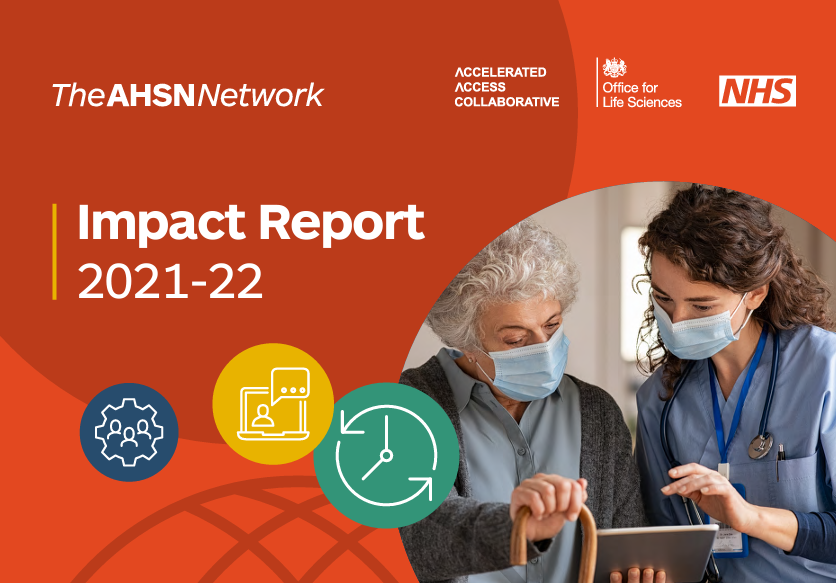A note from our Chair
2021-22 has been pivotal for the AHSNs and the AHSN Network. While we are still supporting our health and care systems with the recovery from the pandemic, we have undertaken work to set out our vision and strategy and refine our processes to ensure we can meet our collective ambition to transform as many lives as possible through more rapid uptake of high value innovation in health and care.
This report reflects our national AHSN Network priorities and our impacts within these areas of work.
I’d like to thank all my colleagues from across the Network and our partners for their continued support this year. We know that team working is key to health system transformation and our achievements are only possible together.
Professor Gary Ford CBE, FMedSci
Chair of the AHSN Network and Chief Executive of Oxford AHSN
Read the Impact Report PDF. You can see more impact stories on the pages below.
2021/22 impacts


“Health equity is the attainment of the highest level of health for ALL people. Achieving health equity requires valuing everyone equally with focused and ongoing societal efforts to address avoidable inequalities, historical and contemporary injustices, and social determinants of health — and to eliminate disparities in health and health care.” (health.gov) Within the NHS there [...]

Sickle cell disease (SCD) is a serious and lifelong health condition. People with SCD produce unusually shaped red blood cells that can cause problems because they do not live as long as healthy blood cells and can block blood vessels. This can result in suffers experiencing painful episodes, called sickle cell crises, as well as anaemia, [...]

At the Royal Society of Medicine’s Tackling Inequalities conference it was clear from the passion in the room that great progress has been made across the system to better support some of our most under-served communities. To maintain this momentum, we must not just embed tackling health and healthcare inequalities in all that we do, [...]







